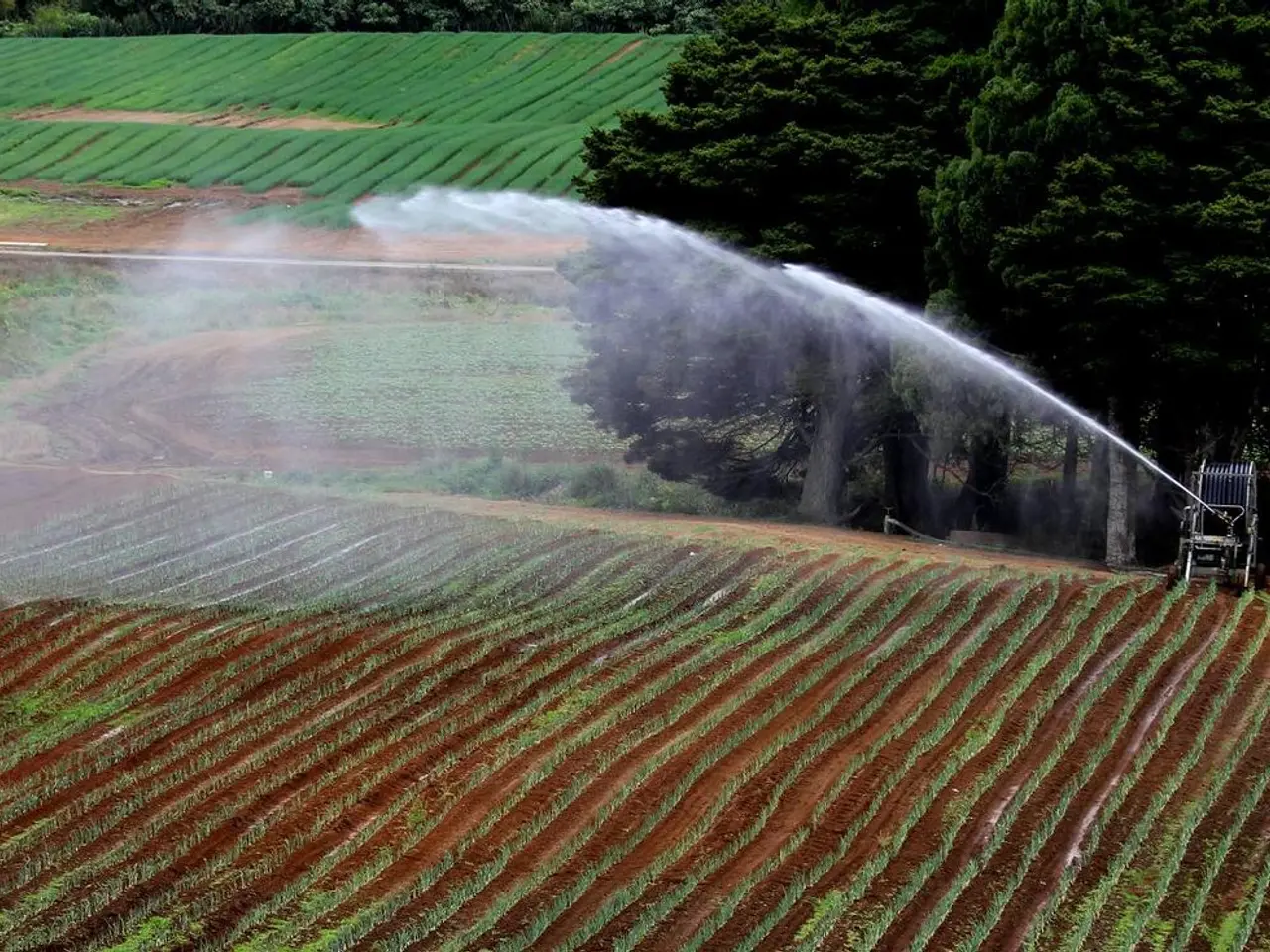Shifting Towards an Economic Structure Founded on Permaculture Principles
In a world where sustainability and community-led economies are becoming increasingly important, Transition Town movements are embracing green finance solutions and permaculture funding strategies to foster resilient transitions.
Grants like RSF Social Finance Seed Fund and government programs are offering funding for food and agriculture projects, including organic farming research and education. These initiatives are crucial in promoting sustainable farming practices, such as permaculture, which focuses on sustainable living systems, including agriculture and architecture.
Permaculture economics prioritizes the planet and people over profit, with key components including soil care, water management, and protecting biodiversity. By adopting permaculture principles, communities can use resources wisely, support local economies, and improve food quality and availability.
The future of permaculture looks bright, with more people and communities recognizing the value of green investments. However, permaculture projects often struggle with funding due to various challenges, including environmental issues and economic instability.
To address this, grassroots movements are leveraging permaculture funding strategies and sustainable finance solutions. For instance, community-owned biogas plants and renewable energy cooperatives generate income by selling biogas and bio-fertilizers, turning waste into wealth and energy security for remote rural communities.
Soil revival and composting programs managed by self-help groups (SHGs) are another approach, especially empowering women to manage organic marketplaces and compost units, combining environmental sustainability with local economic empowerment.
Decentralized circular farming with knowledge services allows farmers to move beyond producing crops to offering consultancy for organic and zero-waste farming, creating resilient circular livelihoods that reduce dependence on external systems.
Crowdfunding and ethical banking are also vital resources for Transition Town projects. Sustainable banks like Triodos or Amalgamated Bank transparently fund renewable energy, organic farms, and socially just projects, while crowdfunding platforms can help with local permaculture projects.
Green finance instruments, such as green bonds, loans, Payment for Ecosystem Services (PES), and debt swaps, are being used to finance regenerative agriculture and eco-friendly investments. These financial products are explicitly tied to environmental and social outcomes, aiding in the growth of permaculture systems.
The USDA's Organic Agriculture Research and Extension Initiative offers significant funding opportunities for organic farming grants, while community-supported agriculture funding is key for creating sustainable food systems.
Grassroots movements are essential in spreading permaculture and moving towards a green economy. By living and working with permaculture values, we can grow food sustainably, protect nature, and help those who are less fortunate.
In summary, Transition Town movements can draw on green finance instruments and local permaculture funding strategies to enable sustainable, resilient transitions. These approaches emphasize local empowerment, ecosystem restoration, and financial products explicitly tied to environmental and social outcomes.
- Transition Town movements are turning to green finance solutions and permaculture funding strategies to foster sustainable transitions, focusing on soil care, water management, and biodiversity preservation.
- Grants like RSF Social Finance Seed Fund and government programs are funding food and agriculture projects, promoting organic farming research and education that encourage sustainable farming practices.
- By adopting permaculture principles, communities can wisely use resources, support local economies, and improve food quality and availability, prioritizing planet and people over profit.
- Local empowerment through self-help groups (SHGs) is a vital approach, empowering women to manage organic marketplaces and compost units, combining environmental sustainability with local economic empowerment.
- Crowdfunding platforms and sustainable banks, such as Triodos or Amalgamated Bank, are helping with local permaculture projects and funding renewable energy, organic farms, and socially just projects.
- Green finance instruments, like green bonds, loans, Payment for Ecosystem Services (PES), and debt swaps, are financing regenerative agriculture and eco-friendly investments, explicitly tied to environmental and social outcomes.
- The USDA's Organic Agriculture Research and Extension Initiative offers significant funding opportunities for organic farming grants, while community-supported agriculture funding is instrumental in creating sustainable food systems.
- Decentralized circular farming with knowledge services helps farmers move beyond crop production, offering consultancy for organic and zero-waste farming, creating resilient circular livelihoods that reduce dependence on external systems.
- Grassroots movements are vital in spreading permaculture and moving towards a green economy, thereby growing food sustainably, protecting nature, and helping those who are less fortunate.
- Grassroots movements are pioneering innovative solutions to fund permaculture projects, such as community-owned biogas plants and renewable energy cooperatives, which convert waste into wealth and energy security for remote rural communities.




